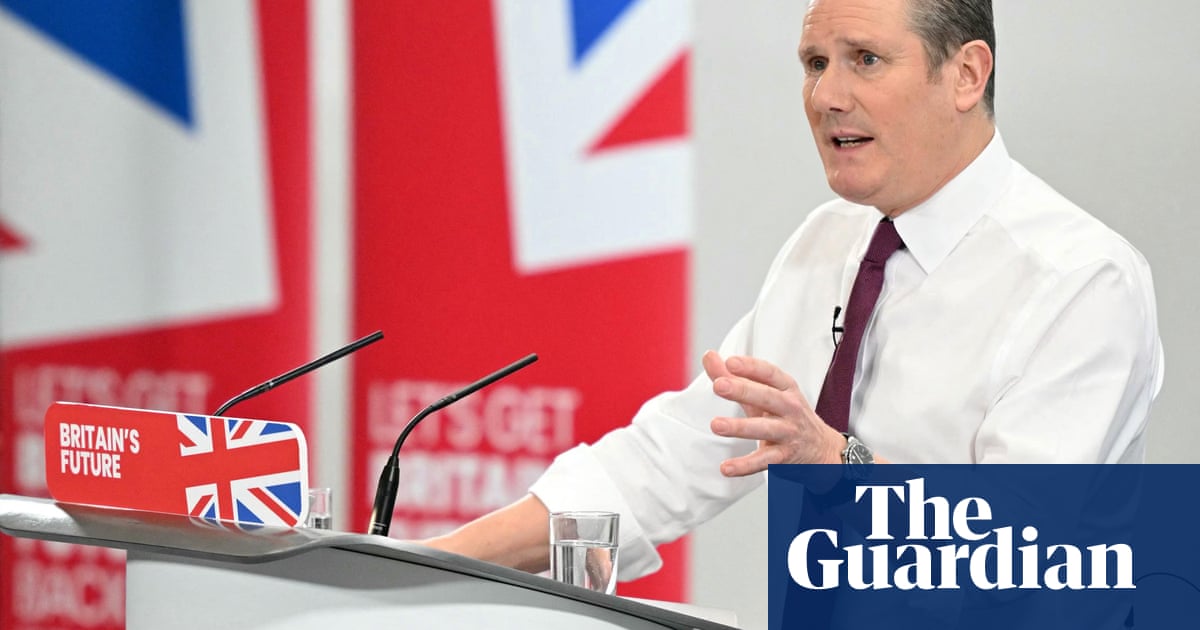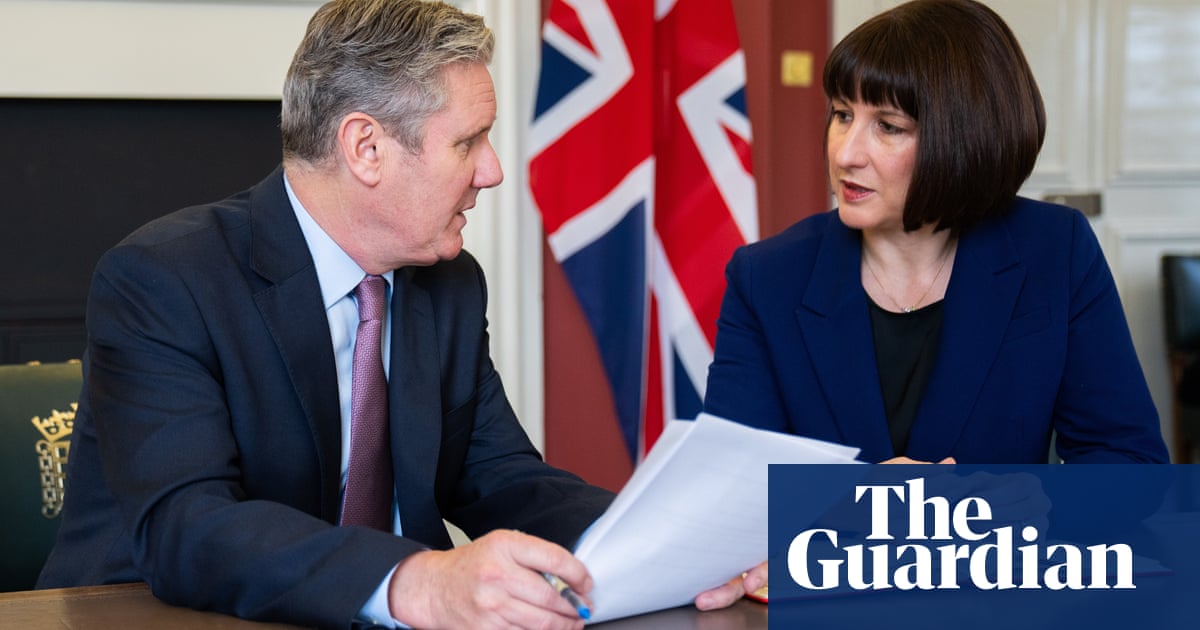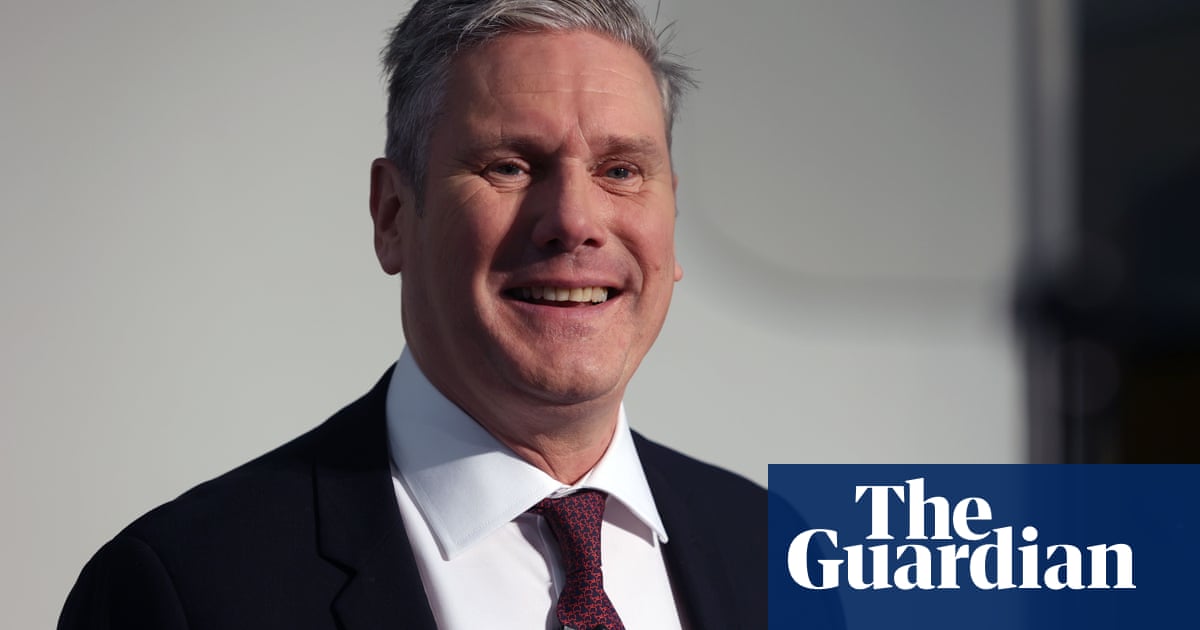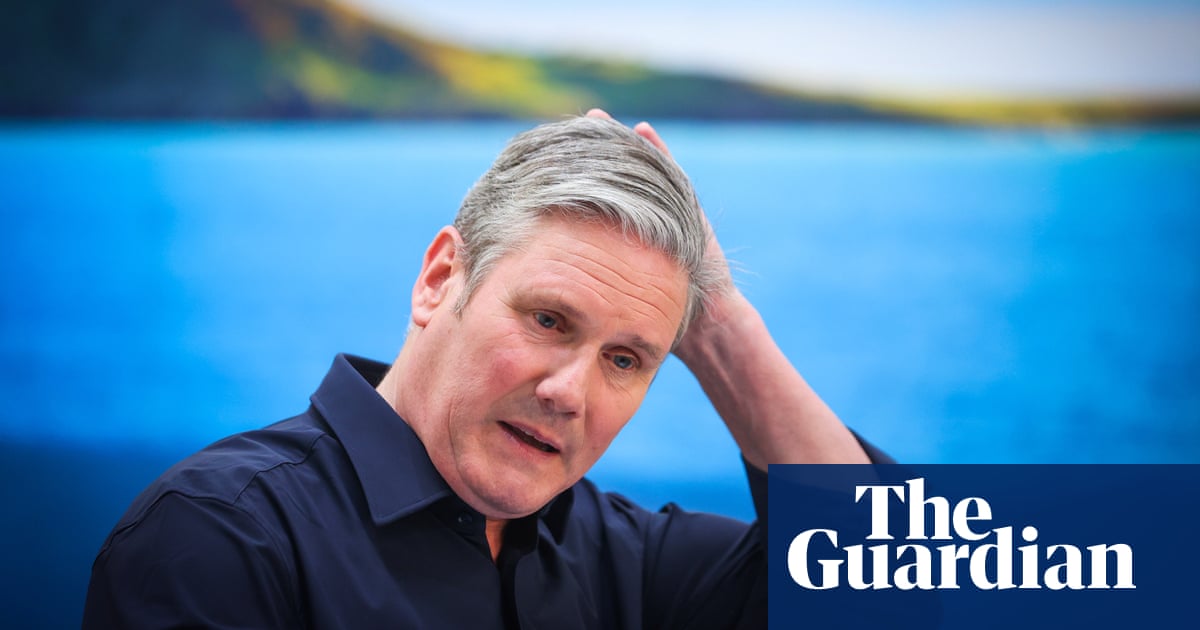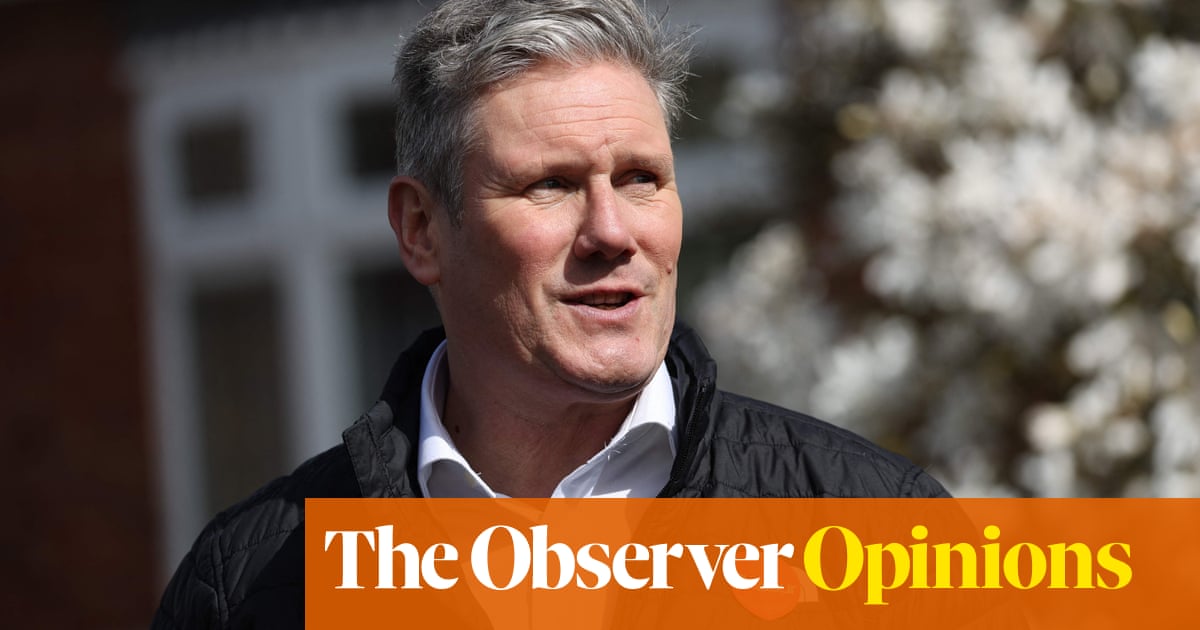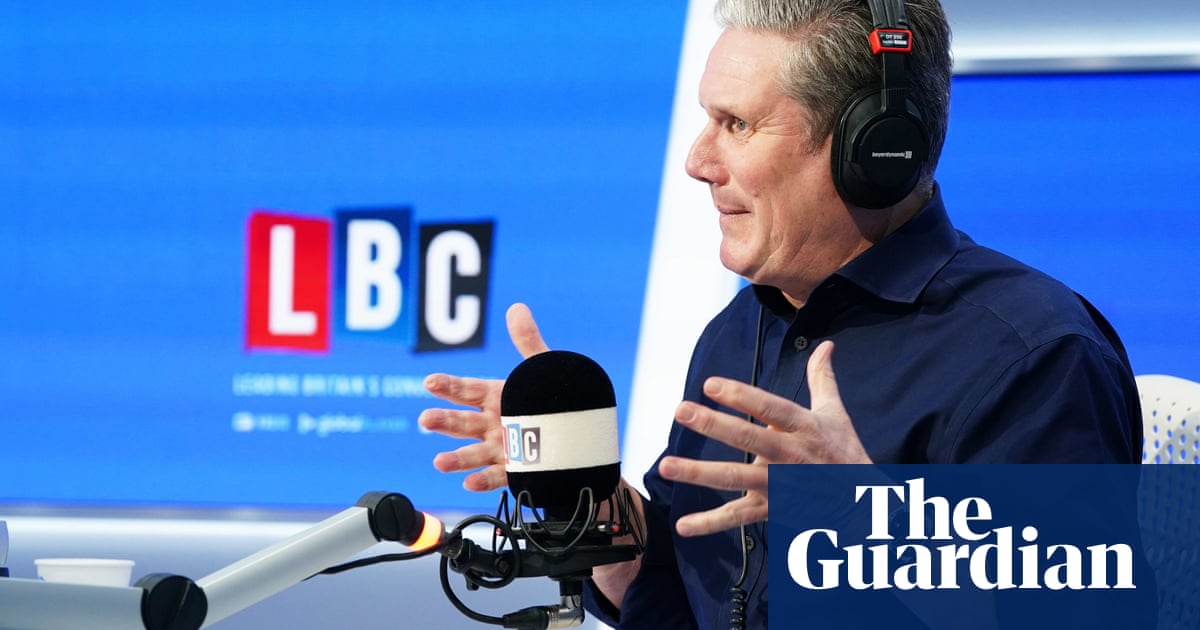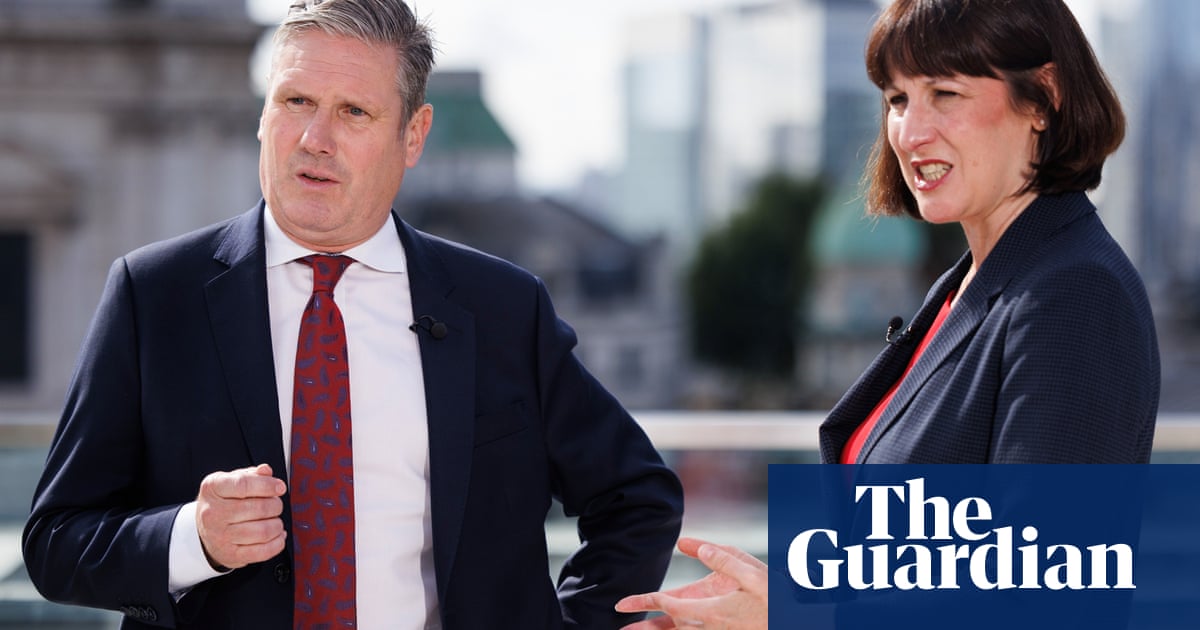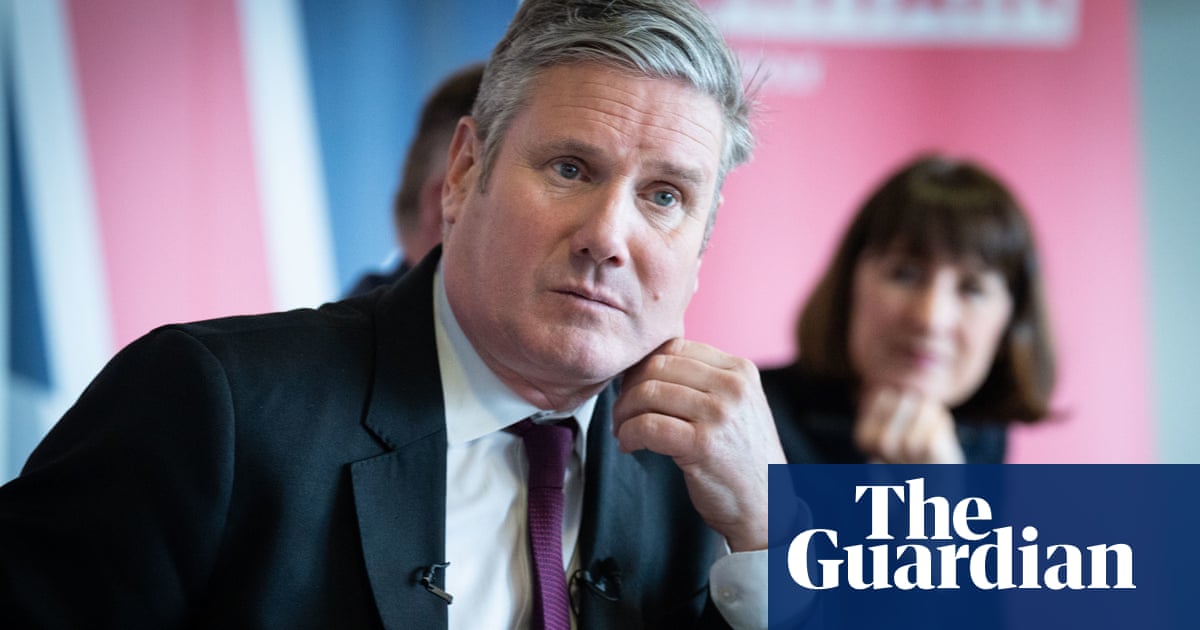
Senior Labour figures are urging Keir Starmer to give the go-ahead to a series of infrastructure projects as part of the party’s £28bn green prosperity plan, even if they are not strictly environmental in nature.
Shadow cabinet ministers have asked the Labour leader and the shadow chancellor, Rachel Reeves, to expand the fund’s green mission and use it to pay for a series of capital spending projects, such as housing or transport infrastructure.
The push threatens to cause tensions among Labour’s top team, with the shadow energy secretary, Ed Miliband, having been one of the strongest advocates of climate action on the frontbench.
One shadow cabinet minister said: “Voters care more about jobs than green stuff. It was always a mistake to call it the green prosperity plan. A bunch of us are now saying to Rachel it should be used for capital spending even if it’s not explicitly green.”
Another Labour source said: “Our industrial strategy and securonomics approach to the economy will mean that we will need to use available public capital more widely than just for net zero projects.”
Green activists have pushed back on the idea of dropping the plan’s focus on environmentalism however.
Chris Venables, deputy director of politics at the Green Alliance, said: “The primary issue at the general election will be the cost of living, but the solution to an economic crisis driven by a volatile fossil fuel market is to get ourselves off gas.”
Reeves first unveiled the plan to spend £28bn a year on climate measures two years ago, promising to be the UK’s “first green chancellor”, and it remains the party’s biggest spending pledge. The party has already committed to using parts of the fund for a range of green schemes, including £60bn to pay for home insulation and £8bn to invest in green industries.
Labour sources say that Reeves has indicated to colleagues there will be no additional money to pay for major infrastructure spending, leaving shadow ministers battling to claim a share of the green fund for their own projects.
Labour is nervous about any suggestion of making uncosted spending pledges, with Paul Johnson, the head of the Institute for Fiscal Studies, warning that any new Labour commitments are likely to require tax rises.
One shadow minister said: “We are all competing for that capital spending at the moment because Rachel Reeves won’t let any other spending happen and won’t allow any other tax rises.”
A Labour spokesperson said: “The green prosperity plan, along with all of our policies, is subject to our fiscal rules being met and fiscal stability being maintained as we seek to tackle climate change – one of the biggest challenges of our time – in a way that cuts bills and creates good jobs and energy security in the process.”
Some in Labour believe that the biggest change to the plan should be in the way it is sold to voters, rather than the kinds of projects it pays for.
A spokesperson for Miliband said: “For Ed this is all about jobs. It’s about bills, security, jobs and climate – in that order. We have always put jobs incredibly high up on our priorities. I think everyone in Labour agrees this is first and foremost a jobs plan.”
Miliband is one of those in the Labour party who has attempted in recent weeks to recast thegreen prosperity plan in the model of the Biden administration’s $500bn Inflation Reduction Act.
That act provides money for a range of green schemes such as subsidies for renewable energy manufacturing and money to help build electric vehicle charging points. But it also provides money for other projects such as an extension of healthcare subsidies and an increase in funding for the Internal Revenue Service.




